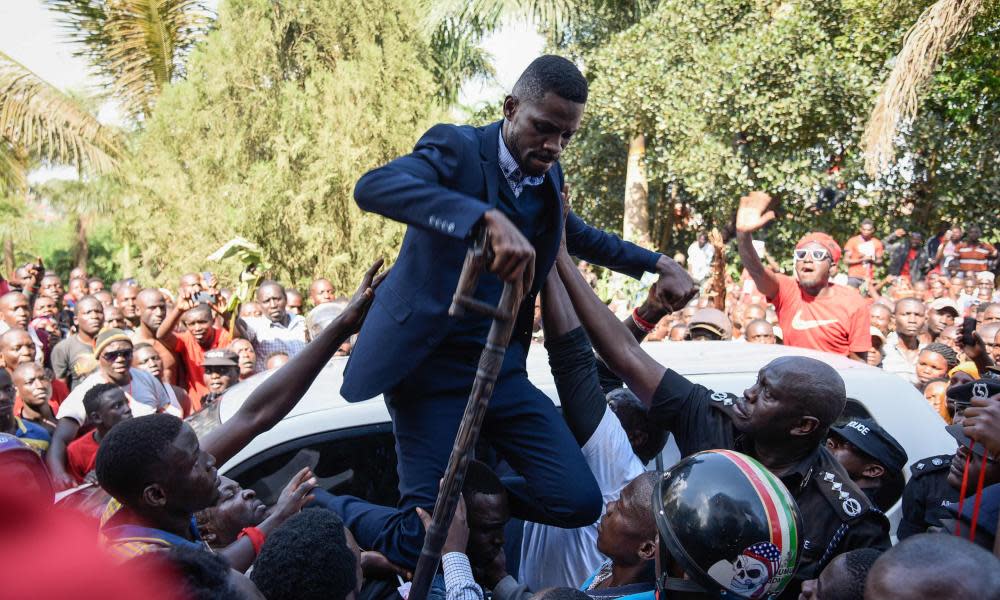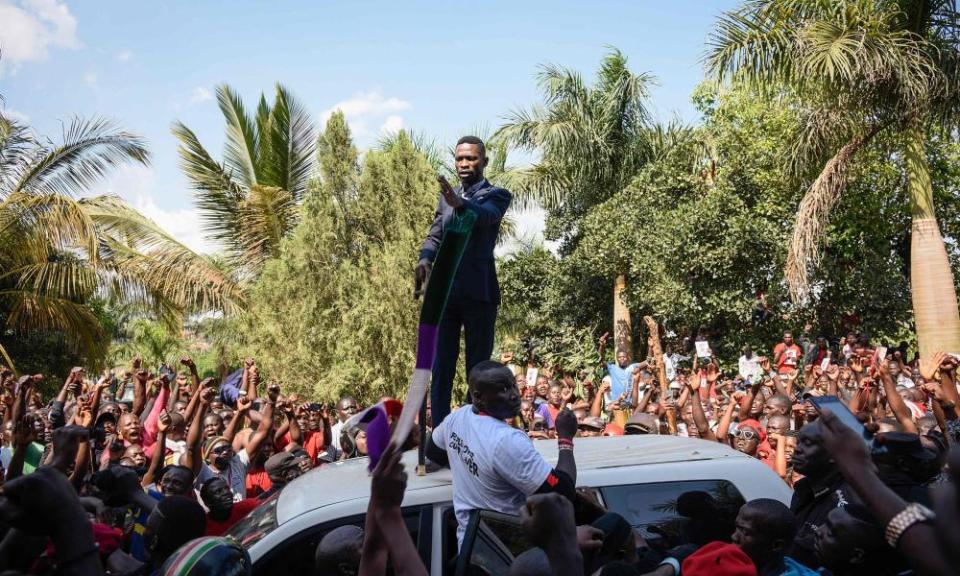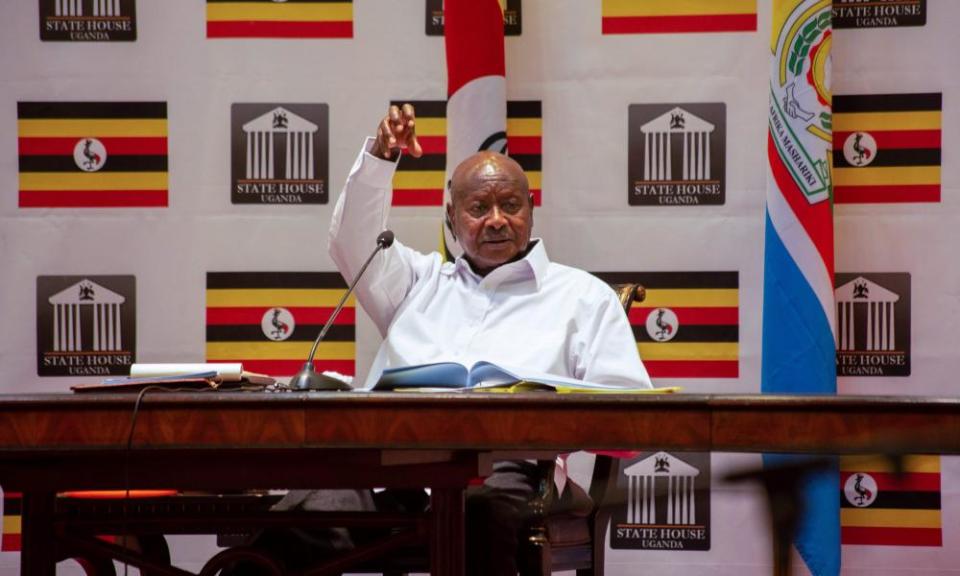Uganda's pop star politician addresses jubilant crowds on return from US

A Ugandan pop star turned opposition politician whose beating by soldiers last month prompted mass protests has vowed to fight on in an address to jubilant supporters on his return to the country from the US.
Bobi Wine’s associates feared he had been arrested after he was separated from other passengers before immigration controls and prevented from seeing his lawyers at Entebbe international airport, then escorted by police to a waiting vehicle.
However the 36-year-old later addressed crowds outside his home in the capital, Kampala. “It’s great to finally be home,” he said to cheers. “It looks like the government is determined to keep us slaves in our own country [but] I have come to continue exactly where I stopped. I am going to fight on.” He said he will now stay in Uganda because “I cannot be a refugee”.

Wine, whose real name is Robert Kyagulanyi Ssentamu, had been receiving medical treatment in the US for injuries sustained following his arrest in mid-August over the alleged stoning of the motorcade carrying Uganda’s veteran president, Yoweri Museveni. He was badly beaten, kept in a military barracks without proper medical attention and then produced in court to face treason charges. His driver was shot dead.
Clutching a cane on Thursday, Wine said he still felt pain and walks “with hardship”, adding that he plans to say more at a press conference on Saturday. The longtime opposition leader Kizza Besigye, who has been arrested many times, said on Twitter it was likely that Wine would “be blockaded at home till further notice”.
In a statement police said that Wine, who faces trial on the treason charges next month, had been “peacefully escorted to his residence”. “We wish to thank him for cooperating with the police,” the statement said. “We urge all people to remain calm. We urge the hon member of parliament to honour the laws of the land and fully comply with his bail conditions.”
Earlier in the day, police and soldiers sealed off roads, erected barricades around the airport and moved into opposition strongholds in Kampala. Demonstrations have been banned and TV networks told not to report live on Wine’s return.
#police #riot vehicles deployed on #entebbe road, ahead of @HEBobiwine 's return from the US. @PoliceUg have said procession of supporters not allowed pic.twitter.com/vafGTWMjBj
— Malcolm Webb (@MalcolmWebb) September 20, 2018
Analysts say the 36-year-old politician poses the most significant challenge in years to Museveni, who leads a country with one of the youngest populations in the world.
The former reggae singer, who was elected to parliament last year, has emerged as a powerful voice with his calls for young people in the east African country to stand up and take over from a “failed leadership”.

Earlier this week Wine told the Guardian he wanted to prove that the “power of the people is greater than the people in power”. “If I think about the dangers that face me, it is crazy to go back. But I want to be home. There are 40 million people who need hope so I will go and meet them no matter what,” Wine said.
On Thursday he told AFP: “To the youths and underprivileged of Uganda, this is your struggle and I am ready to take the leadership role. Uganda is ready for change and this is not the time to let down that call.”
Security forces were also deployed overnight to outside the homes of opposition leaders. Police escorted Medard Ssegona, Wine’s lawyer and member of parliament, from his home to his office at parliament.
Musician friends of Wine who attempted to travel to Entebbe to welcome him home were also held by police. Witnesses said soldiers and police deployed along the entire length of the road between Kampala and Entebbe town, about 30 miles south.
Many of Wine’s songs deal with social and political issues, calling for ordinary young people to act to improve their lives and their country. He has compared himself to France’s president, Emmanuel Macron, and made no secret of his presidential ambitions. However, the singer is controversial and has faced repeated accusations of homophobia.
More than 80 artists, activists and politicians signed a statement condemning his treatment in detention. There were also protests in other countries in Africa, the UK and the US.

Analysts say it is likely that the Ugandan authorities did not expect him to return when they allowed him to fly to the US.
Nick Cheeseman, professor of democracy at the University of Birmingham and an expert in African politics, said Wine will have to reach more voters if he is to mount a serious challenge to Museveni.
“You need more than charisma and a bit of a following among the urban youth. You need a nationwide structure and a lot of money. Uganda remains a predominantly rural country,” he said.
Museveni, who took power in 1986 and is a key US security ally, has become increasingly authoritarian. The 74-year-old president is able to seek re-election in 2021 because parliament passed legislation last year removing a clause in the constitution that had prevented anyone over 75 from holding the presidency.
Demonstrations following Wine’s detention last month were repressed by riot police and other security forces. Three people died and around 100 were arrested.
The US, EU and UK have been critical of the treatment of Wine, a sign that long-standing support for Museveni may be ebbing as observers worry about growing instability.

 Yahoo News
Yahoo News 
